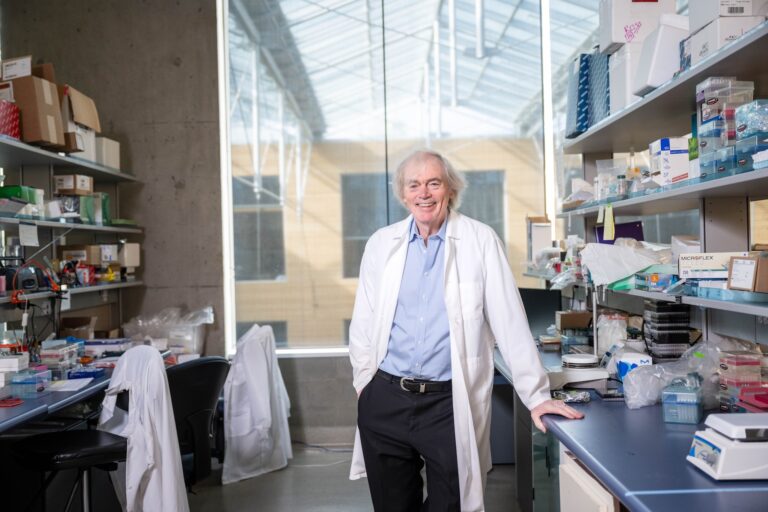UBC ranks seventh globally in impact: Times Higher Education
UBC continues to excel in the Times Higher Education Impact Rankings, placing first in Canada and seventh globally out of more than 850 participating institutions from 89 countries across six continents.
UBC continues to excel in the Times Higher Education Impact Rankings, placing first in Canada and seventh globally out of more than 850 participating institutions from 89 countries across six continents.
The rankings, inaugurated in 2019, measure universities’ overall impact through their work in meeting the United Nations’ 17 sustainable development goals. In addition to its overall ranking, UBC placed first in two separate goals—for conserving life under water by protecting marine habitats, and for taking action to mitigate climate change—the only university to rank first in more than one goal. UBC also placed third for promoting life on land through sustainable management of forests and related ecosystems.
“I’m pleased that UBC continues to stand out in the Times Higher Education impact rankings. The result speaks to the incredible work by our faculty, students and staff in responding to the world’s most pressing issues,” says UBC President and Vice-Chancellor Santa J. Ono.
Recognizing the urgency of climate action, UBC recently joined communities and organizations around the world in declaring a climate emergency. The university is currently working through a consultation process with students, faculty, staff and other partners to inform a collective response to the crisis.
“At a time when a global pandemic has underscored how truly connected we are, universities play a bigger role than ever in helping build sustainable cities, communities and societies. I’m truly proud of how the UBC community has stepped up to the challenge,” said Ono.
UBC researchers and partner organizations are also at the forefront, generating new knowledge and informing solutions that can help in managing and protecting our land and water environments. With more than three billion people depending on marine and coastal biodiversity, good stewardship is vital to maintain fragile habitats and ecosystems.
“These rankings not only recognize UBC research strengths in many areas relating to the sustainable development goals,” said Vice-President, Research and Innovation, Gail Murphy. “They also reflect the commitment across our campuses to integrate our research, teaching, learning and operations in ways that can influence change and ensure the health and growth of our communities.”
With more than 80,000 people living, working and learning in its Vancouver and Okanagan campuses, UBC is also continuously working to shrink its environmental footprint and reduce waste. The university is on course to achieve zero net emissions by 2050, thanks in large part to green energy initiatives including a biomass facility that reduces reliance on natural gas, a solar-powered parkade and a net zero-energy “passive house” for faculty and staff housing. As well, single-use plastics were recently banned from campus to keep more pollutants out of landfills.
“UBC has crafted a strong climate action plan that aligns well with the principles of sustainable development. We’re working closely with multiple sectors and partners to ensure that aspects of sustainability captured by the sustainable development goals are integrated into what we do on campus, and even beyond,” notes John Madden, director, sustainability and engineering at Campus and Community Planning.
For more information on the Times Higher Education Impact Rankings, click here.



